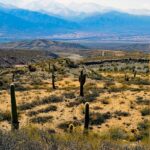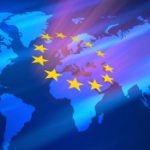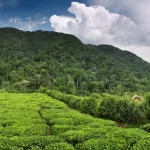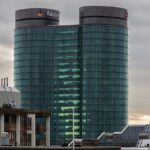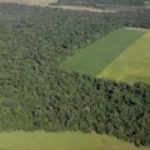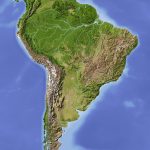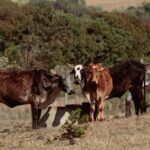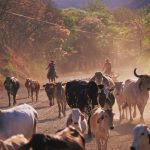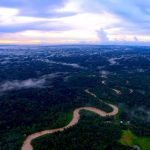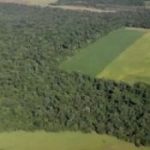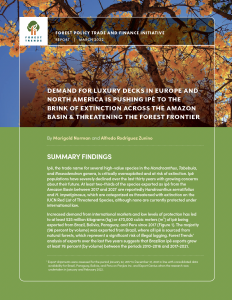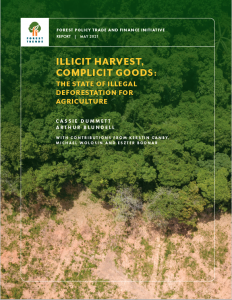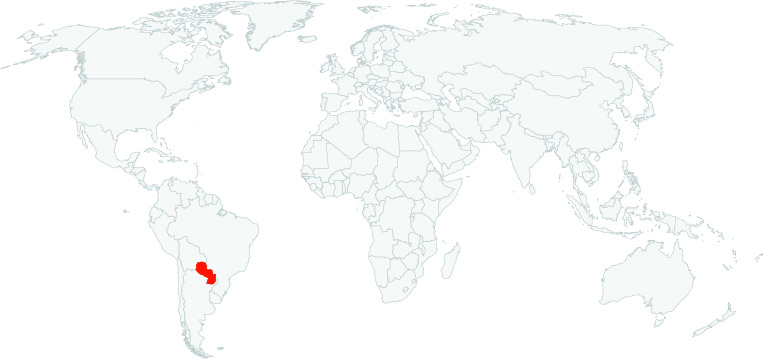
Interpol said 12 companies were involved in the alleged deforestation and trafficking of native tree species, and that it identified two criminal networks. A spokesman said alleged crimes include illegal logging of various tree species, illicit trafficking of timber, use of fake documents to traffic in illegal wood, and various acts of deforestation. He said the delay in announcing the arrests was in part to allow for follow-up investigation.
Gabriel Funari, head of the Amazon Observatory of Illicit Economies for Global Initiative, said they are seeing large transnational criminal groups that have grown through drug trafficking revenue, such as one of Brazil’s largest crime gangs, Primeiro Comando da Capital — commonly known as PCC — increasingly diversifying their investment portfolios into various illicit markets with goods that pass through the Tri-Border, like firearms, timber, wildlife and gold.
Increased trade in agricultural products between Mercosur countries and the EU could potentially aggravate deforestation, raising questions about the compatibility of the agreement with environmental goals.
As global tea demand grows by over 2% annually, the pressure on land for cultivation may lead to increased deforestation and greenhouse gas emissions, further intensifying the impacts of climate change. Once tea is plucked it must go through various stages of processing, including withering and drying: energy-intensive processes that often use vast amounts of wood or, in some cases, fossil fuels such as coal. This not only results in CO2 emissions, but also has the potential for “hidden deforestation” for wood to burn.
This report by Global Witness shows how the 20 biggest banks in the EU have provided billions to companies linked to deforestation since 2016. This review shows that voluntary guidelines and individual commitments by financial institutions are unlikely to stop the financing of forest destruction.
For the past 11 years, Global Witness has documented and denounced waves of threats, violence and killings of land and environmental defenders across the world, and 2022 marks the beginning of our second decade documenting lethal attacks. The world has changed dramatically since we started documenting these in 2012. But one thing that has not changed is the relentlessness of the killings.
Last year, at least 177 defenders lost their lives for protecting our planet, bringing the total number of killings to 1,910 since 2012. At least 1,390 of these killings took place between the adoption of the Paris Agreement on 12 December 2015 and 31 December 2022.
Major banks and financial institutions including BlackRock, BNP Paribas, HSBC and Santander continue to hold substantial shares in – or provide financial services to – beef companies linked to illegal deforestation in the Gran Chaco region of Paraguay.
A report by rights group Global Witness released last month says these financiers knowingly bankroll beef traders accused of having links to deforestation, despite warnings in 2020 by U.K.-based NGO Earthsight about the beef industry’s impact on the Gran Chaco.
Almost all of the banks, investment managers and pension funds named in the new report are members of voluntary initiatives to eliminate and reverse commodity-driven deforestation from their portfolios.
Paraguay has one of the highest rates of tropical deforestation in the world, having lost a quarter of its net forest cover between 2000 and 2020 — an area almost twice the size of Belgium.
The contacted Ayoreo-Totobiegosode have been engaged in a legal battle for their traditional homelands for nearly 30 years, and although Paraguay designated this region as a protected area in 2001, several cattle-ranching companies have obtained land titles within the region, with deforestation continuing.
Demand for wood from ipê trees in the Amazon Basin could lead to their extinction if better international trade regulations aren’t implemented soon, according to a new report from Forest Trends. Ipê hardwood is in high demand in the luxury timber market, especially for outdoor boardwalks, decks and furniture, as well as hardwood floors.
Fianna Fáil MEP, Billy Kelleher has commented on the agreement between the European Commission and European Council to block products, such a beef or cattle, from entering the EU market which are linked to deforestation, and potential impacts on South American exporters of cattle products.
The forests of the Gran Chaco in Paraguay, home of one of the world’s last uncontacted Indigenous nations, continue to be the target of illegal deforestation linked to luxury automakers such as BMW and Jaguar Land Rover.
Two of three Paraguayan leather exporters shown to be buying hides from cattle grazed in illegally deforested parts of the Gran Chaco have increased their sales to Europe since the issue came to light in September 2020.
Paraguay’s level of deforestation is outpacing some of its much larger neighbors – especially in the destruction of protected land. At least 5,000 hectares of federally protected land in national parks have been destroyed by illegal deforestation in the past two years, Cristina Goralewski, president of the National Forest Institute (Instituto Forestal Nacional – Infona), told Paraguayan media.
A recent analysis by the Zoological Society of London found that over half of the 100 most significant tropical timber and pulp companies do not publicly commit to protecting biodiversity and only 44% have yet to publicly commit to zero deforestation. As of 2021, forests still cover about 31% of the world’s land area, but they are disappearing at an alarming rate. Since 1990, the world lost 1.3 million sq km of forest due to deforestation for land uses and commercial agriculture.
Click here to access the Global Illegal Logging and Associated Trade (ILAT) Risk assessment tool and to download the Forest Trends User Guide describing the functionality of the ILAT Risk Data Tool.
Click here to access the Cattle Data Tool.

